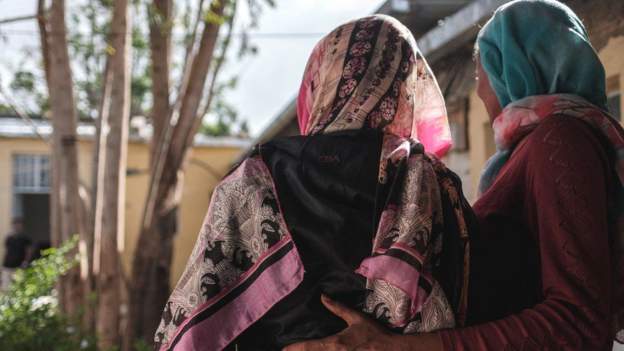A new report by the Human Rights Watch has accused the Ethiopian government of blocking aid to health facilities and preventing rape victims from getting help.
The 89-page report details the health impact, trauma, and stigma experienced by rape survivors aged six to 80 since the beginning of the armed conflict in Tigray in November last year.
The Ethiopian government has in the past denied purposely blocking humanitarian aid to the region.
The HRW accuses the warring parties of committing widespread sexual violence while deliberately targeting healthcare facilities, leaving survivors and their communities unable to get medical attention.
It details the physical and psychological injuries that result, including sexually transmitted diseases, broken bones, stab wounds, traumatic fistulas and post-traumatic stress disorder.
The rights group says the African Union, the United Nations and international donors should press the Ethiopian government and all parties to the conflict to halt abuses and allow international investigations into alleged abuses.
Latest Stories
-
We have enough funds to pay accruing benefits; we’ve never missed pension payment since 1991 – SSNIT
21 mins -
Let’s embrace shared vision and propel National Banking College – First Deputy Governor
57 mins -
Liverpool agree compensation deal with Feyenoord for Slot
1 hour -
Ejisu by-election: There’s no evidence of NPP engaging in vote-buying – Ahiagbah
1 hour -
Ejisu by-election: Independent ex-NPP MP’s campaign team warns party against dubious tactics
2 hours -
ZEN Petroleum supports Tse-Addo Future Leaders School
2 hours -
NPP must win back Adentan seat in 2024 polls – Obeng Fosu
3 hours -
PPA Clarification: The dark side of the World Bank’s ‘giveaways’ in Ghana by Bright Simons
4 hours -
Blinken says China helping fuel Russian threat to Ukraine
4 hours -
MHA declares May as Purple Month for Mental Health Awareness
5 hours -
WAEC arrests former headmaster over illegal students registration
5 hours -
MeToo founder Tarana Burke defiant after Harvey Weinstein ruling
5 hours -
Be alert, insist on decent messages – Dwumfour tells media
5 hours -
Father jailed 10 years for burning daughter’s genitals with hot cutlasses
5 hours -
I aim to help Ghana produce world-class athletes – Asamoah Gyan
6 hours

